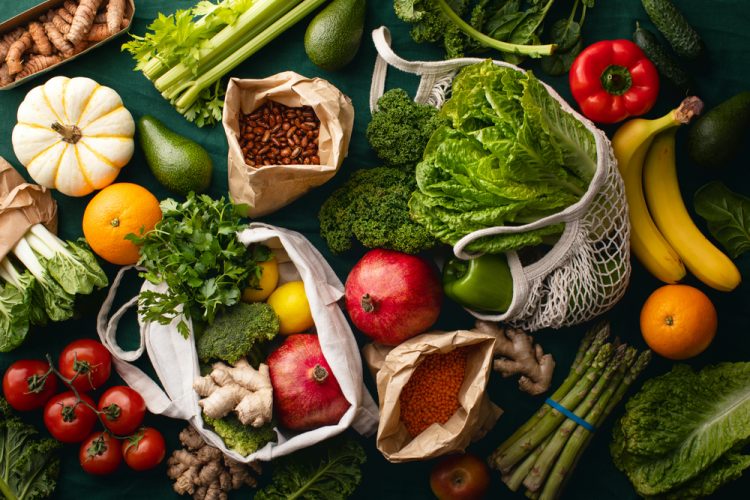Government unveils new strategy to improve the UK food system
Posted: 15 July 2025 | Ben Cornwell | No comments yet
The new framework sets out 10 priority outcomes to overhaul the UK’s food landscape, boosting health, sustainability and economic growth.


In a bid to reshape the UK’s food system, the Government today (15 July) launched the “Good Food Cycle,” a new strategy aimed at tackling obesity, food insecurity and climate pressures.
Unveiled at Bradford’s Darley Street Market as part of the city’s 2025 City of Culture celebrations, the plan sets out 10 priority outcomes to build a healthier, more resilient and sustainable national food landscape.
Minister for Food Security Daniel Zeichner declared the strategy a “major milestone”.
He said:
Food security is national security – we need a resilient food system that can weather any storm while ensuring families across the country can access affordable, healthy food.
We are actively defining the outcomes we want from our food system to deliver a whole system change that will help the amazing businesses that feed our nation to grow and thrive, which means more jobs and stronger local economies, while making it easier for families to eat and feel better.”
Addressing key issues
The “Good Food Cycle” forms a core part of the Government’s broader Plan for Change, targeting obesity, food insecurity and the climate impact of food production. At its heart are 10 priority outcomes that balance public health, environmental sustainability and industry prosperity. These include:
- Creating healthier food environments and increasing sales of sustainable food
- Ensuring all communities have access to affordable, nutritious food
- Boosting sector productivity and innovation through fairer, more transparent supply chains
These outcomes are designed to help address the £11.4 billion annual cost of obesity to the NHS and to support families in the face of rising living costs.
Health Minister Ashley Dalton said the new approach would help make sure “all families have the option of healthy, high-quality food”.
She added:
The Good Food Cycle will be good for the health of our communities and help us curb the rising tide of cost and demand on the NHS.”
Building on recent reforms
The framework was developed with input from across government departments, the Food Strategy Advisory Board, and members of the public through a Citizen Advisory Council. Key industry players and charities also contributed through targeted workshops, reflecting a collaborative approach to food system transformation.
The Government’s new direction builds on recent reforms, including partnerships with major food companies to increase transparency around the sale of healthier foods. The goal is to stop high-fat, high-sugar products from crowding out healthier options on supermarket shelves.
The strategy also plays a key role in tackling child poverty. New policies include expanding free school meals to 500,000 more children and providing free breakfast clubs across all primary schools.
Employment Minister Alison McGovern, who serves on both the Ministerial Food Strategy Group and the Child Poverty Taskforce, said the framework was essential to levelling the playing field for Britain’s children:
It’s unacceptable that children in Britain are growing up without access to healthy and affordable food – holding back their learning and development.
The Good Food Cycle will ensure the next generation are well fed and ready to reach their full potential.”
Food industry reacts
The strategy drew positive reactions from food and health leaders. Professor Susan Jebb, Chair of the Food Standards Agency, called it a step in the right direction. She said:
We welcome the ambitions set out in the Good Food Cycle today and support the outcomes it describes.
We continue to work closely with other departments in the delivery of the strategy, playing our part to make it easier for consumers to access food that is healthier and more sustainable.”
Balwinder Dhoot, Director of Sustainability and Growth at the Food and Drink Federation (FDF), commented:
From the everyday staples found in kitchen cupboards, fridges and freezers, like oats, yoghurts, tins of beans and frozen vegetables, to ready meals, confectionary and new healthier snacks, UK food and drink manufacturers help the nation have a balanced and varied diet, amid busy lifestyles.
We welcome this strategy’s holistic view that considers all of the factors affecting our sector – from creating the right conditions to drive investment in new healthier products, through to removing barriers to trade and ensuring we have the skilled workers we need. We’re pleased to see government acknowledge the importance of our industry to achieving a resilient, sustainable and healthy food system for the UK and look forward to working together to develop this ambitious Food Strategy.”
With obesity and climate pressures escalating, and food poverty affecting nearly one in five children, the Government hopes the “Good Food Cycle” will deliver structural reform to the UK food system and ensure future generations have access to a healthier diet and a better future.
Related topics
Environment, Food Security, Health & Nutrition, Regulation & Legislation, Supply chain, The consumer, Trade & Economy
Related organisations
Department for Environment Food and Rural Affairs (Defra), Food and Drink Federation (FDF), Food Standards Agency (FSA), UK Government









